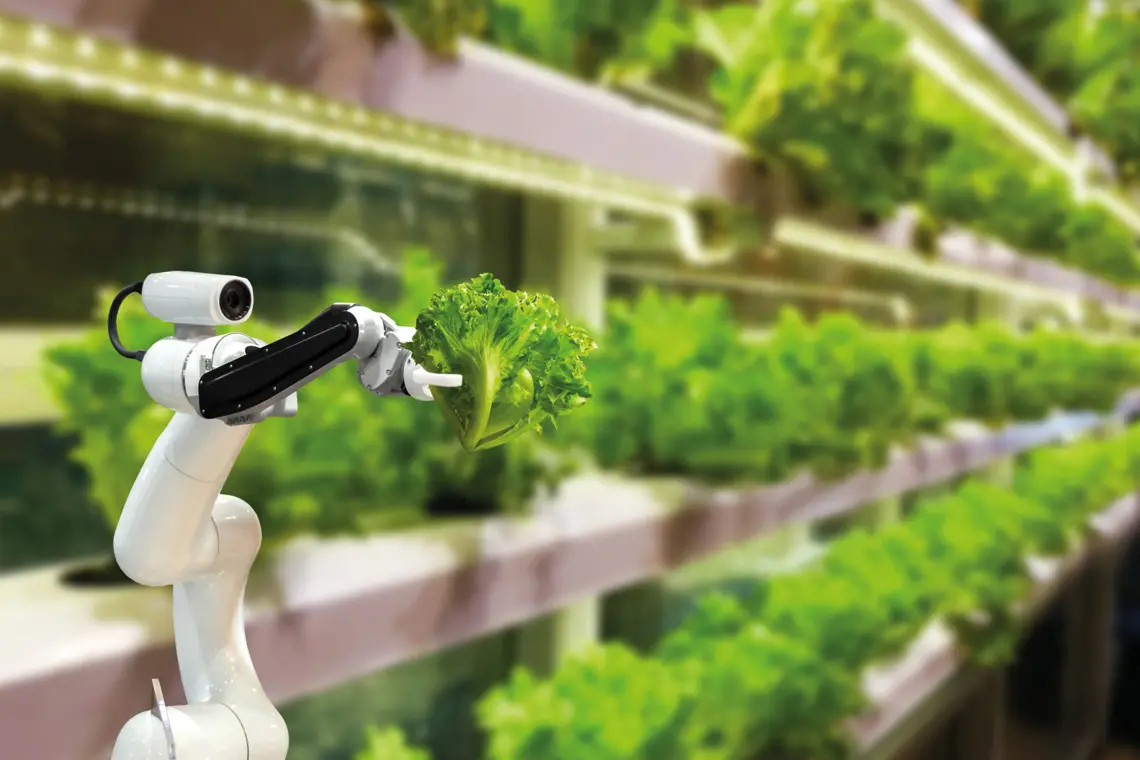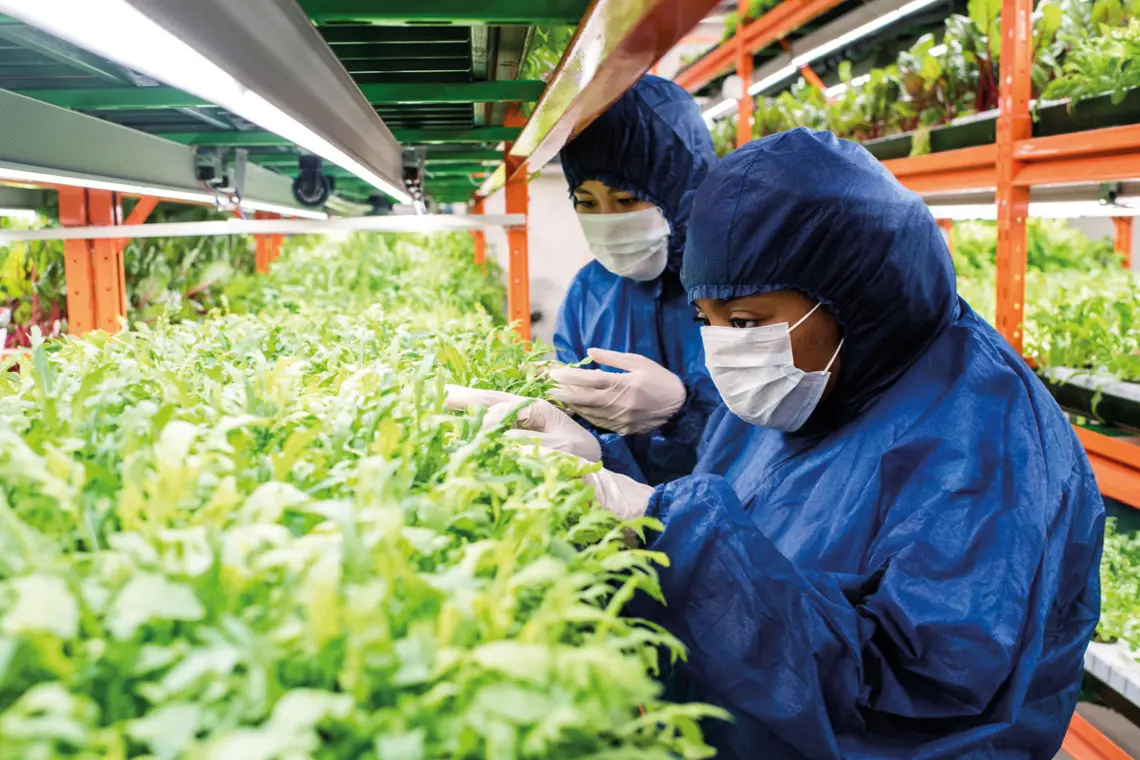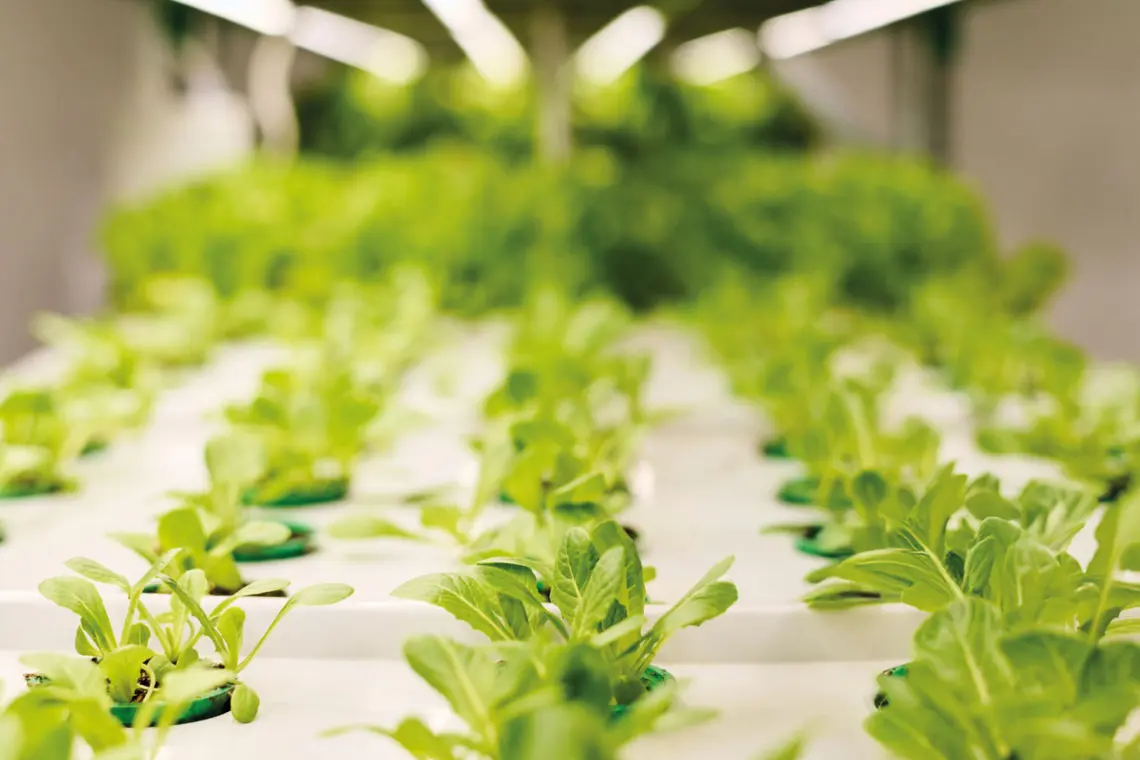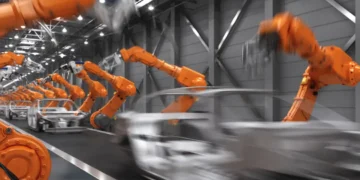Founded in 2015 and headquartered in New York, Bowery Farming is one of the leading vertical farming innovators in the United States. Their mission: transform how food is grown by leveraging indoor, data-driven systems that minimise resource use and improve crop yields. Bowery’s farms operate in tightly controlled environments, enabling year-round production of pesticide-free leafy greens and herbs.
Why It Matters for FDI
Foreign Direct Investment (FDI) in sustainable agriculture has been growing, especially as global investors look for climate-resilient, tech-forward ventures. Bowery Farming presents:
High-Tech, Data-Driven Agriculture
- Proprietary “BoweryOS” uses sensors, computer vision, and machine learning to continuously refine growing conditions.
Urban Proximity & Freshness
- Bowery builds farms near major metropolitan areas, ensuring fresher produce with fewer transportation emissions.
Sustainability Metrics
- Uses up to 95% less water than traditional farming.
- Grows produce without chemical pesticides, appealing to conscious consumers.

Project Details & Expansion Plans
Existing Facilities
- Operates vertical farms in Kearny, New Jersey, and Nottingham, Maryland, among others.
- Products (lettuces, herbs) distributed through local groceries and direct-to-consumer channels.
New Pennsylvania Farm
- Bowery recently expanded to a larger facility in Bethlehem, Pennsylvania.
- This new site integrates cutting-edge automation—from seeding to harvesting—to boost production capacity and efficiency.
Location Advantages
- Bethlehem is within a one-day drive to major East Coast markets (NYC, Philadelphia, Washington D.C.).
- Pennsylvania offers tax incentives and economic development programs supporting agritech initiatives.

Investment Rationale
Market Demand for Local, Sustainable Produce
- Consumer appetite for locally grown, organic-style produce continues to rise across the U.S.
- Bowery’s model ensures consistently high-quality greens even during off-season months.
Scalable Tech Infrastructure
- Each Bowery facility is a replicable module that can be placed in multiple regions.
- Investors have the potential to see faster scale-ups compared to traditional greenhouse expansions.
Reduced Supply Chain Vulnerabilities
- On-site climate control reduces weather risks, aligning with broader concerns about climate change.
- Stable yields and less reliance on cross-country trucking can make operations more profitable over time.
Potential Roles for Foreign Investors
Strategic Partnerships
- Collaborations with tech companies in Europe or Asia (e.g., robotics, AI) to enhance Bowery’s automated systems.
- Joint ventures to localize Bowery Farming’s model in international markets.
Equity or Venture Capital
- While Bowery Farming is venture-backed, future funding rounds or expansions might allow new investors.
- Impact funds or sustainability-focused funds could see synergy with Bowery’s green approach.
Co-Branding & Distribution
- Companies specializing in global distribution might partner to bring Bowery produce to additional U.S. markets—or eventually overseas.
Financial Snapshot (Illustrative)
- Capital Expenditure: Building and retrofitting an indoor farm can cost tens of millions of dollars, depending on size and technology levels.
- Projected Returns: Indoor vertical farming can yield 20–25 harvest cycles per year (vs. 1–2 in traditional farming), indicating promising long-term ROI if operations scale effectively.
- Revenue Model: Primarily from produce sales to supermarkets, restaurants, meal kit providers, and direct consumer channels.
Disclaimer: Actual investment terms and capital needs vary. Bowery Farming’s official communications or investor relations materials should be consulted for up-to-date details.

Risk Factors
- Market Competition
- Competitors like Plenty, BrightFarms, and AeroFarms also operate indoor farms, vying for retail partnerships.
- Energy Costs
- Vertical farms rely heavily on LED lighting and climate control; rising electricity prices can affect profitability.
- Regulatory Environment
- Most states support agritech, but changes in zoning or agricultural policy could affect site selection and incentives.
How to Move Forward
- Due Diligence: Potential investors should track Bowery Farming’s press releases, funding rounds, and speak with investor relations (if/when open to external funding).
- Government Liaison: Consult Pennsylvania’s Department of Community & Economic Development (DCED) for information on local tax credits and workforce training grants.
- Local Network Building: Engage with supermarkets, chefs, and farm-to-table advocates to gauge brand recognition and distribution potential.
Bowery Farming exemplifies how indoor vertical agriculture is reshaping U.S. agribusiness. The company’s expansions into Pennsylvania and beyond signal strong consumer demand for fresh, sustainable produce. While Bowery may not currently run a formal FDI capital raise, the model and growth trajectory highlight the opportunities available in controlled-environment agriculture.



















